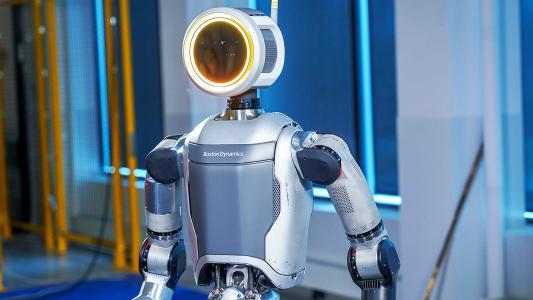Meta just made its latest move in the AI wars, upgrading its AI assistant, Meta AI, with a new model it claims is the best in its class.
The background: In December 2022, OpenAI wowed the world (or at least the internet) with the release of ChatGPT, an AI chatbot that can understand and generate conversational text thanks to its foundational large language model (LLM).
Since then, seemingly every other tech company has been developing its own LLMs and racing to release even more powerful AIs built upon them.
The Meta-verse: Facebook owner Meta is no exception.
In February 2023, it unveiled Llama and made it open-source — the code is available for free on the internet. By July, it had shared an upgraded version (Llama 2), which powers a ChatGPT-like assistant, called Meta AI, which was released in September.
“Meta AI will now be the most intelligent freely available assistant.”
Mark Zuckerberg
Meta has now upgraded Llama once again and integrated the new model into Meta AI, which it is making available to more people in more places.
“With Llama 3, Meta AI will now be the most intelligent freely available assistant,” Meta CEO Mark Zuckerberg told the New York Times. “And because we’ve reached the quality level we want, we’re now going to make it much more prominent and easier to use across all our apps.”
The details: Meta is open-sourcing two Llama 3 models, one with 8 billion parameters and the other with 70 billion (in general, the more parameters, the more complex and capable the model). In testing, they outperformed comparably sized open-source LLMs, according to Meta.
“We believe these are the best open source models of their class, period,” the company writes in a blog post.
While developers use the new models to build their own tools and applications, non-coders can take advantage of Llama 3 through Meta AI, which can now provide results from web search engines — this sets it apart from the free version of ChatGPT, which doesn’t have access to the internet.
Meta AI is now accessible through search boxes on Facebook, Instagram, WhatsApp, and Messenger, as well as its own website and Ray-Ban Meta smart glasses. The AI assistant will soon be integrated into the Meta Quest headset, according to Meta.
Wherever you use Meta AI, though, the same issues that have always existed with LLMs still apply — the AI can hallucinate, presenting false information as true — so you will need to fact check its results when appropriate.
“We believe these are the best open source models of their class, period.”
Meta
Looking ahead: Meta says it is already training a 400 billion parameter version of Llama 3 and expects to release new Llama models in the coming months, including ones that are multimodal (capable of understanding and generating multiple kinds of media, such as text, images, and videos).
Zuckerberg told the Verge that Llama 4 and 5 are already in the works, too, signs of Meta’s commitment to unseating OpenAI as the dominant player in the AI space.
“At this point, our goal is not to compete with the open source models,” he said. “It’s to compete with everything out there and to be the leading AI in the world.”
We’d love to hear from you! If you have a comment about this article or if you have a tip for a future Freethink story, please email us at [email protected].






